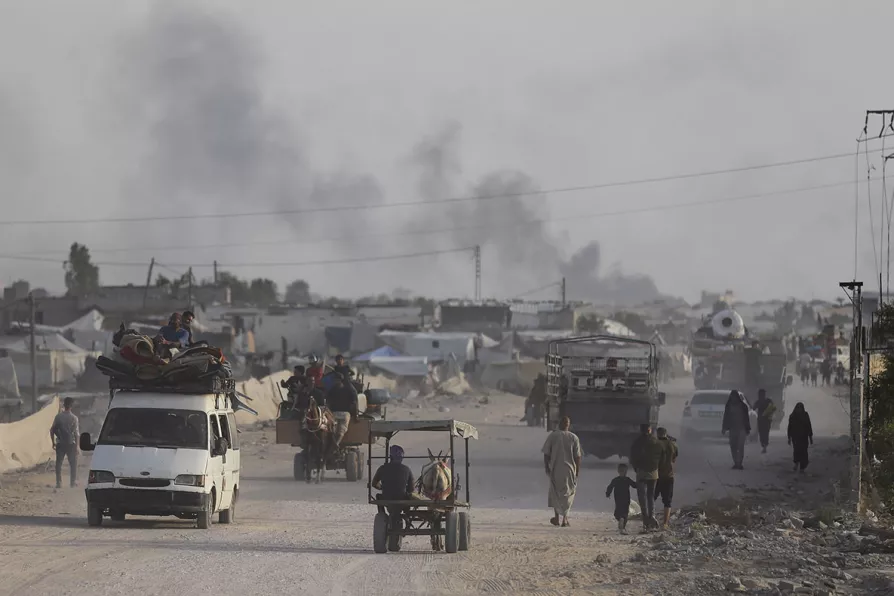Activists label Gaza a ‘famine-stricken zone’

 Palestinians fleeing from the southern Gaza city of Rafah during an Israeli ground and air offensive in the city on May 28, 2024
Palestinians fleeing from the southern Gaza city of Rafah during an Israeli ground and air offensive in the city on May 28, 2024
ACTIVISTS today labelled Gaza a “famine-stricken zone.”
Palestinian non-governmental organisations made the call at a news conference on Wednesday in the West Bank city of Ramallah as they set out the conditions being suffered by Palestinians in Gaza after months of Israeli bombing.
Speaking to the conference by video, Amjad Shawa, director of the Palestinian NGOs Network in Deir el-Balah, said: “What is required now is to declare Gaza Strip as a famine-stricken zone.”
Similar stories

Israel continues to operate with impunity in what seems to be a brutal and protracted experiment, while much of the world looks on, says RAMZY BAROUD

Meanwhile, Labour government toughens rhetoric against the genocide, but stops short of making any changes in policy or practical support for Israel












